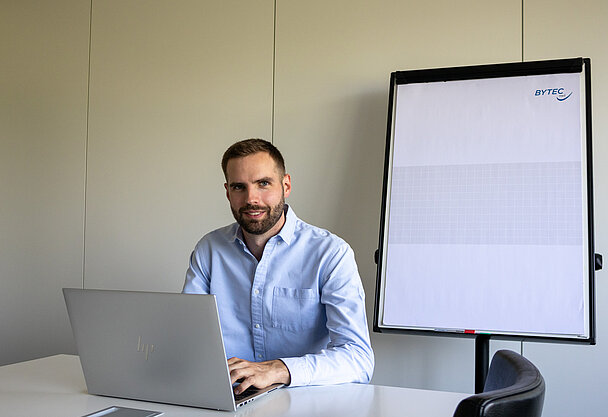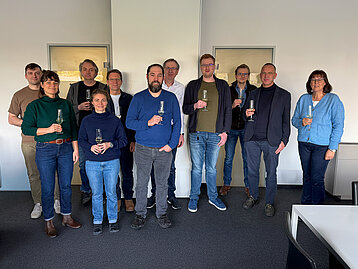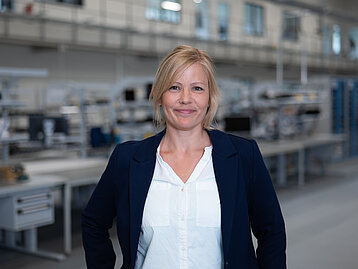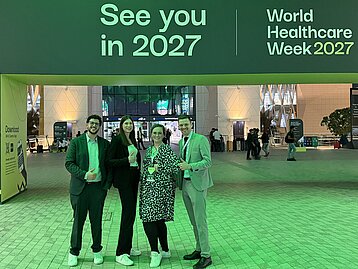Please introduce yourself briefly.
I work as an Embedded Software Developer at BYTEC. We develop the software that later runs on the devices. Software development doesn't just involve the actual coding, but the work around it actually takes up most of the work. First of all, you have to think about what the software should be able to do, what you want to solve with the software and what should perhaps be solved via the hardware.
In our industry, the safety of the product continues to play a major role in order not to (additionally) endanger the health of patients. For this reason, safety aspects are included early on in the software development process. Once the software has been designed and implemented, it needs to be tested. After any bugs have been fixed, the exciting moment comes when the software is installed on the device for the first time and the device is brought to life. This is always an exciting moment for both software and hardware development, as it shows whether we have worked well over the last few months.
As we always work well, there are of course never any problems 😉
How/why did you get into medical technology?
My main motivation as an engineer is to develop products that bring added value to society. I also became increasingly interested in medicine during my studies. Medical technology was therefore the perfect industry for me to satisfy my interest in medicine and technology as well as to develop something that improves people's quality of life.
Which emerging technologies in the field of medical technology do you find particularly exciting?
I find the emergence of AI particularly exciting, especially when this technology is used to make decisions independently. How do you ensure that a system that not only executes deterministic programs, but is based on a more or less transparent, highly complex neural network, always makes sensible decisions? Who is ultimately responsible for these decisions?
If you could decide for yourself, what kind of product would you develop/build?
I personally find neuroprostheses very exciting due to the interaction between technology and the human nervous system. These include, for example, arm and leg prostheses that enable patients to control lost limbs via their nervous system and even regain sensation. Brain-computer interfaces, which enable people who are completely paralyzed to interact with the outside world again by directly controlling a computer via their brain, are also very exciting.

If you could have a superpower, what would it be and why?
It would be very practical if you could memorize everything, but selectively. That would save a lot of time in everyday life when you're looking for something you already knew at some point.
Not having to sleep would also be great, then you would have a lot more time to live.
In relation to Marcel (teleportation): If so, then only selected people should be able to do it, otherwise you want to have your peace and quiet somewhere on a mountain and suddenly 10 influencers appear next to you.
What do you like most about your job?
In general, I like the fact that I develop solutions that don't yet exist and that you have to think outside the box sometimes. But at the same time, the goal is to develop something that helps mankind and to have a finished product in front of you at the end of the work.
What makes BYTEC a great place to work?
The uncomplicated cooperation between the departments and the flat hierarchies in general. It's basically just uncomplicated. I can also personally contribute my own ideas and help shape processes.
How would you describe our team in three words?
Flexible, helpful and creative


